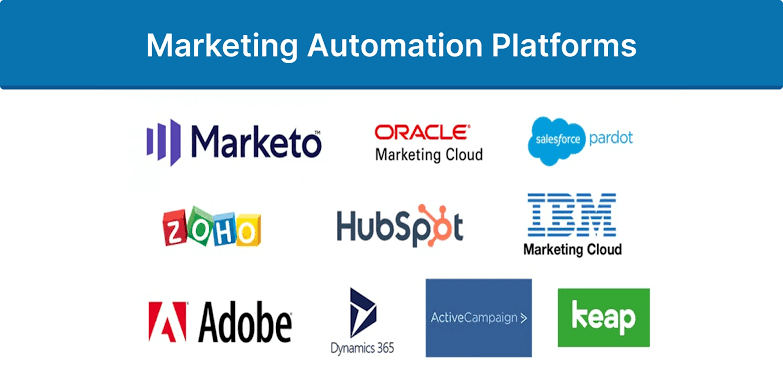Marketing automation platforms have grown far beyond simple campaign scheduling tools. They now play a central role in shaping the customer experience, personalizing outreach, and improving return on investment. The top platforms of 2025 combine AI, machine learning, and seamless integrations to help businesses of all sizes stay competitive in a data-driven world.
Marketing automation has become a necessity in the modern digital landscape. With customer journeys becoming more complex and omnichannel strategies being the norm, marketers need tools that help them streamline processes, personalize content, and generate results at scale. In 2025, marketing automation is no longer just about email campaigns—it spans social media, advertising, lead nurturing, sales alignment, and AI-driven personalization.
Here are ten of the most powerful marketing automation platforms available today, selected for their innovation, ease of use, scalability, and advanced capabilities.
10. Mailchimp
Originally known for email marketing, Mailchimp has evolved into a robust all-in-one marketing platform. It’s especially ideal for small to mid-sized businesses looking for affordability without sacrificing performance. The platform now includes journey builders, customer segmentation, AI-generated content suggestions, and even e-commerce automation tools.
With new integrations for CRM systems and improved analytics as of 2025, Mailchimp provides actionable insights and simple automation workflows that help growing brands compete effectively.
9. ActiveCampaign
ActiveCampaign remains a favorite among businesses that value deep personalization and customer experience automation. Its strength lies in its sophisticated email automation combined with CRM features, making it an excellent choice for lead nurturing and customer lifecycle marketing.
The platform’s predictive sending and machine learning enhancements help marketers deliver messages at the right time, increasing open rates and conversions. As of this year, ActiveCampaign has also added better integrations with e-commerce platforms and an expanded AI assistant for content suggestions.
8. SharpSpring (now part of Constant Contact)
SharpSpring has gained traction thanks to its affordability and agency-focused feature set. It provides a comprehensive marketing suite that includes lead scoring, behavioral tracking, dynamic forms, and even a built-in CRM.
In 2025, after deeper integration with Constant Contact, SharpSpring has improved its analytics dashboard, campaign management tools, and client reporting features. It’s a smart choice for agencies and consultants managing multiple client accounts.
7. Pardot (Salesforce Marketing Cloud Account Engagement)
Salesforce’s Pardot continues to be one of the top choices for B2B marketing automation. Its close connection with Salesforce CRM provides a seamless bridge between marketing and sales, helping businesses align their efforts and convert high-quality leads.
The platform now features more advanced AI tools through Einstein Analytics, which helps marketers identify patterns, score leads more accurately, and improve content engagement. It’s ideal for enterprises and B2B marketers looking for deep data intelligence and customization.
6. HubSpot Marketing Hub
HubSpot is a long-standing leader in inbound marketing automation. The Marketing Hub includes email marketing, blogging, landing pages, SEO tools, social media scheduling, and robust analytics—all under a user-friendly interface.
As of 2025, HubSpot’s marketing automation includes powerful AI-driven insights, multichannel campaign orchestration, and more customizable workflows. It’s particularly effective for growing companies that want to scale quickly while maintaining control and visibility.
5. Zoho Marketing Plus
Zoho continues to impress with its integrated ecosystem, and Marketing Plus is no exception. This suite combines email marketing, social media, event management, and web analytics into one streamlined solution.
With recent upgrades, Zoho has added AI tools for sentiment analysis, customer profiling, and intelligent scheduling. It’s a practical option for small businesses and startups that want automation tied into their broader business operations through Zoho’s ecosystem.
4. Oracle Eloqua
Oracle Eloqua remains a top-tier platform for large enterprises with complex marketing needs. Its strength lies in its precision segmentation, campaign management, and powerful integrations across Oracle's cloud ecosystem.
As of 2025, Eloqua has further embraced AI, enabling real-time personalization, improved lead scoring, and dynamic content delivery. While it’s best suited for large-scale B2B operations, its depth and flexibility make it a formidable choice for high-volume marketing teams.
3. Klaviyo
Klaviyo is the platform of choice for e-commerce businesses, especially those running on Shopify, WooCommerce, and BigCommerce. It specializes in automating email and SMS campaigns based on user behavior, product interactions, and shopping data.
In 2025, Klaviyo has expanded into predictive analytics, AI-powered product recommendations, and customer lifetime value forecasting. Its seamless integration with e-commerce platforms and real-time segmentation give it a major edge in personalized online retail marketing.
2. Adobe Marketo Engage
Marketo Engage by Adobe continues to set the standard in enterprise marketing automation. The platform offers detailed lead management, omnichannel campaign execution, advanced analytics, and robust account-based marketing tools.
Recent improvements include better AI-powered content recommendations, deeper integration with Adobe Experience Cloud, and expanded personalization tools across channels. Marketo is a go-to solution for large organizations managing complex buyer journeys and needing precision at scale.
1. Brevo (formerly Sendinblue)
Brevo has emerged as the most versatile and fast-evolving marketing automation platform in 2025. What started as a simple email service has grown into a multi-channel automation giant, offering email, SMS, WhatsApp messaging, chatbots, CRM, and more.
Its pricing model remains accessible, while its features have grown increasingly sophisticated. Brevo’s standout features now include AI-powered customer journeys, real-time performance analytics, advanced automation scenarios, and intuitive drag-and-drop builders. It’s widely adopted by startups, e-commerce brands, and mid-sized companies looking for all-in-one efficiency and scalability.
